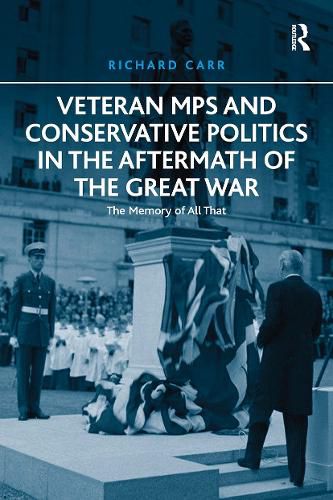Readings Newsletter
Become a Readings Member to make your shopping experience even easier.
Sign in or sign up for free!
You’re not far away from qualifying for FREE standard shipping within Australia
You’ve qualified for FREE standard shipping within Australia
The cart is loading…






Between 1918 and 1939, 448 men who performed uniformed service in the First World War became Conservative MPs. This relatively high-profile cohort have been under-explored as a distinct body, yet a study of their experiences of the war and the ways in which they - and the Conservative Party - represented those experiences to the voting public reveals much about the political culture of Interwar Britain and the use of the Great War as political capital. Radicalised ex-servicemen have, thus far, been considered a rather continental phenomenon historiographically. And whilst attitudes to Hitler and Mussolini form part of this analysis, the study also explores why there were fewer such types in Britain. The Conservative Party, it will be shown, played a crucial part in such a process - with British politics serving as a contested space for survivors' interpretations of what the war should mean.
$9.00 standard shipping within Australia
FREE standard shipping within Australia for orders over $100.00
Express & International shipping calculated at checkout
Between 1918 and 1939, 448 men who performed uniformed service in the First World War became Conservative MPs. This relatively high-profile cohort have been under-explored as a distinct body, yet a study of their experiences of the war and the ways in which they - and the Conservative Party - represented those experiences to the voting public reveals much about the political culture of Interwar Britain and the use of the Great War as political capital. Radicalised ex-servicemen have, thus far, been considered a rather continental phenomenon historiographically. And whilst attitudes to Hitler and Mussolini form part of this analysis, the study also explores why there were fewer such types in Britain. The Conservative Party, it will be shown, played a crucial part in such a process - with British politics serving as a contested space for survivors' interpretations of what the war should mean.